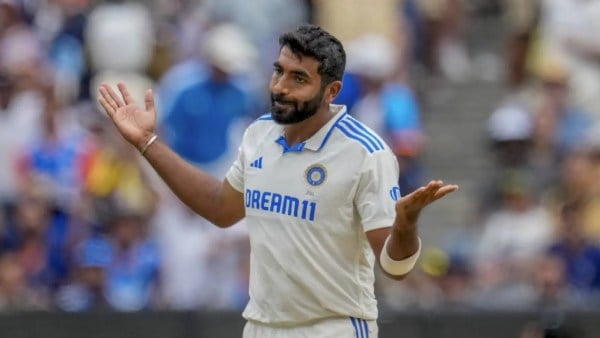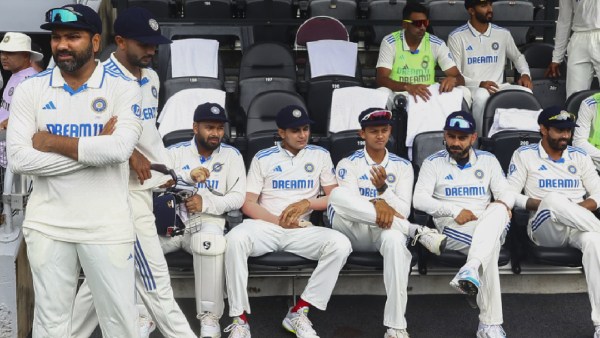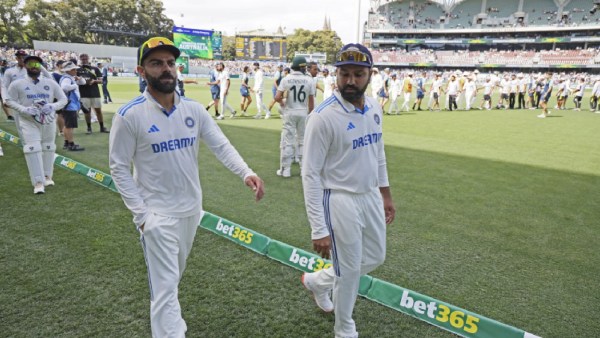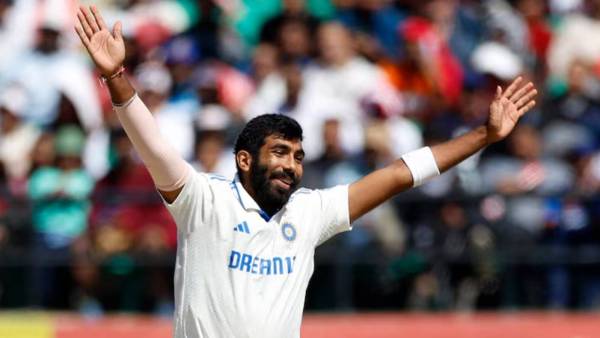
Old timers at Kotla remember Rishabh Pant as the pahadi boy from Haridwar who had a naturally aggressive game and was overly respectful to his teammates: He called them bhaiyya.
A few days ago, Pant’s one-time Delhi senior and now India coach Gautam Gambhir bhaiyya had cracked the whip following the Melbourne loss in the ongoing Australia tour. One of Gambhir’s targets was said to be Pant, who had got out to an atrocious shot.
In the first innings of the Test at Sydney, given his deferential attitude, Pant would play an uncharacteristically subdued knock. He scored 40 from 98 balls in two hours. The batting buccaneer seemed to be holding back, trying hard not to listen to his mind that would have been asking the daredevil to make the usual risky choices.
Pant’s innings symbolised the team in transition, coming to terms with the mindset of the new decision-makers settling in their roles and finally asserting themselves. Restlessness was also seen in other dismissals — Shubman Gill stepping out in the last over before lunch and getting caught in slips, Nitish Reddy fatally poking at an imminently leaveable first ball.
 Now, with Sharma set to retire, one hopes that the BCCI doesn’t get unduly adventurous and give the captaincy to a batsman. Bumrah is the only worthy candidate to be named India’s long-term Test skipper. (AP)
Now, with Sharma set to retire, one hopes that the BCCI doesn’t get unduly adventurous and give the captaincy to a batsman. Bumrah is the only worthy candidate to be named India’s long-term Test skipper. (AP)
As curtains come down on the Virat Kohli–Rohit Sharma era, contrary to common belief, the toughest challenge isn’t in finding a new captain or the batsmen to replace the two stalwarts. In Jasprit Bumrah, contemporary cricket’s sharpest brain, India have a worthy replacement. Yashasvi Jaiswal, Gill and Reddy aren’t yet Kohli or Sharma but they give hope. They have the kind of statistics that the two fading stars had in their early 20s.
What this Indian Test team needs is a new playing template and an identity. Till very recently, under Kohli and Sharma’s watch, Indian cricket’s buzzword was intent, even when the ball was red. The traditional Test plot of playing the waiting game, draining out the bowlers, and waiting for the third session to score runs was considered archaic.
Stone-walling was a cowardly act, stroke-making was a sign of courage and appreciated. Since the sidelining of Test specialists Cheteshwar Pujara and Ajinkya Rahane, there was a certain homogeneity about the Indian batting line-up with every player representing the same approach to the game: It was Brown Bazball.
 India’s Rohit Sharma, Rishabh Pant, Shubman Gill and Virat Kohli wait for play to start on day three of the third Test between India and Australia at the Gabba in Brisbane, Australia. (AP Photo)
India’s Rohit Sharma, Rishabh Pant, Shubman Gill and Virat Kohli wait for play to start on day three of the third Test between India and Australia at the Gabba in Brisbane, Australia. (AP Photo)
There was success but India had become predictable. They hadn’t even quite ruled world cricket. The World Test Championship triumph was beyond them. And late last year, as the first sign of Sharma’s fading captaincy aura, India also suffered a 3-0 whitewash at home against New Zealand.
The Kohli and Sharma era was memorable but those can’t be institutionalised norms. Their winning formula wasn’t strong enough to be set in stone, to be followed by all future teams. There was a need for a rewrite.
What matters in sport are results and not the commitment of the captain or the coach to a batting philosophy. The reason India couldn’t get the likely result of a draw
in Melbourne but ended losing tamely was the three unwarranted shots played by its premier batsmen.
Sharma and Kohli could have easily left the balls they got out on. They needed to play for time but they opted to assert their dominance. Pant too became a victim of his own image. He could have sent the ball bouncing on MCG’s sprawling turf for a four but he did what he is famous for — he tried to clear the ropes and was out caught.
 India’s captain Rohit Sharma, right, and teammate Virat Kohli leave the field after their loss in the second cricket test match against Australia at the Adelaide Oval in Adelaide, Australia. (AP)
India’s captain Rohit Sharma, right, and teammate Virat Kohli leave the field after their loss in the second cricket test match against Australia at the Adelaide Oval in Adelaide, Australia. (AP)
Interestingly in cricket, the identity of a team gets defined only by the way it bats. More so in India, where run-making gets greater appreciation than the more difficult skill of taking wickets.
Now, with Sharma set to retire, one hopes that the BCCI doesn’t get unduly adventurous and give the captaincy to a batsman. Bumrah is the only worthy candidate to be named India’s long-term Test skipper. This could go a long way in changing the Indian team’s identity and bring about the necessary course correction. After several decades of batsmen leading the team, Bumrah can bring about the changes that are begging to be made. The most successful bowler in the history of the game at this stage of his career, Bumrah has an astute brain and a neutral outsider’s view of the team’s batting approach. Unlike Kohli or Sharma, he wouldn’t have a batsman’s bias in framing the team’s run-making plans.
What does Bumrah know about batting, the uninitiated may ask? Bowlers spend a lifetime reading batsmen’s minds. Second-guessing them is second nature to them. An anecdote would help here. During the India-Pakistan World T20 game, Bumrah was up against Mohammad Rizwan with the game getting really close. With not too many runs left, captain Sharma played the Bumrah card early.
Conventional wisdom said Rizwan wouldn’t risk scoring big against India’s main bowler, he would just play him out. Bumrah knew the Pakistan mindset better. He guessed that Rizwan would actually attack him to shatter India’s morale and finish the game. Out came a slow off-cutter and dug into the pitch that fooled Rizwan who was anticipating a faster length ball. The stumps were shattered — Bumrah had well and truly turned the game India’s way.
 Michael Vaughan who called Bumrah GOAT, said he had arrived at the revelation that Bumrah wasn’t at all a momentum bowler. (Reuters)
Michael Vaughan who called Bumrah GOAT, said he had arrived at the revelation that Bumrah wasn’t at all a momentum bowler. (Reuters)
The once-in-a-generation bowler also carries the angst of being an under-appreciated bowler in his own country. He has a point to prove. “I understand that our country loves big batsmen and fair enough, but for me, bowlers drive the game… we are the smart ones,” he has said in the past.
A bowler who the Aussies dread, and not batsmen who are sitting ducks, is more suitable to lead the side. Bowling aces like Pat Cummins for Australia, and earlier Anil Kumble for India, showed they bring the necessary poise and broader outlook to
the job, without allowing fragile batting egos to muddle their thinking. Bumrah would also be the best load-manager of his own body.
A man of few words, Bumrah can’t be everybody’s friend. He is unlikely to be the 3 am captain like Sharma; nor is he driven by the Us vs Them narrative like Kohli. Bumrah’s biggest achievement is his record-breaking numbers. World cricket’s most influential captain Imran Khan once said that the only way one can earn the respect of the dressing room is through performance. That will help Bumrah be the Big Brother who can help Pant find the mid-path. India doesn’t need to worry about the transition or the future. As Bumrah’s pace-partner Mohammad Siraj keeps saying in his viral tweet — “I am only believe on Jassi bhai, because game-changer he is the only guy.”
Forget the syntax, the grammar is perfect.
Send feedback to sandydwivedi@gmail.com
Discover the Benefits of Our Subscription!
Stay informed with access to our award-winning journalism.
Avoid misinformation with trusted, accurate reporting.
Make smarter decisions with insights that matter.
Choose your subscription package







Aus Open: Novak Djokovic explains not giving on-court interview because of ‘insulting and offensive comments’ from host broadcaster presenter | Tennis News
At the end of tennis matches, it is customary that the winner shares a few words on the on-court interview but on Sunday, Novak Djokovic refused to give the interview…